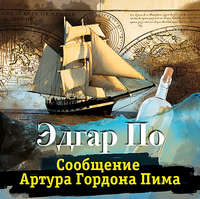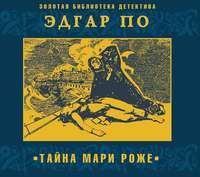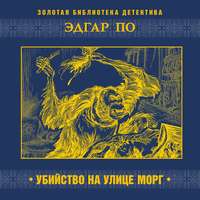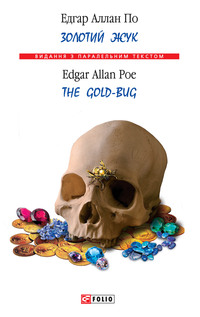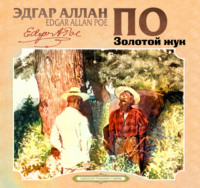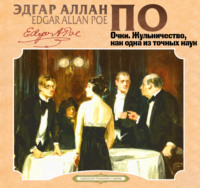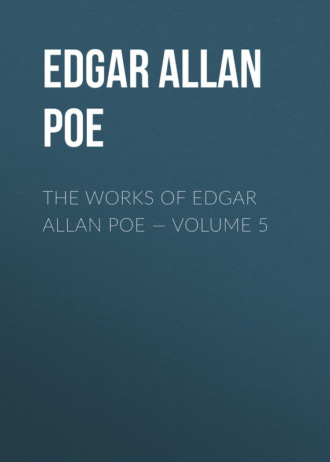 полная версия
полная версияThe Works of Edgar Allan Poe – Volume 5
OLD ENGLISH POETRY5
IT should not be doubted that at least one-third of the affection with which we regard the elder poets of Great Britain should be-attributed to what is, in itself, a thing apart from poetry-we mean to the simple love of the antique-and that, again, a third of even the proper poetic sentiment inspiredby their writings should be ascribed to a fact which, while it has strict connection with poetry in the abstract, and with the old British poems themselves, should not be looked upon as a merit appertaining to the authors of the poems. Almost every devout admirer of the old bards, if demanded his opinion of their productions, would mention vaguely, yet with perfect sincerity, a sense of dreamy, wild, indefinite, and he would perhaps say, indefinable delight; on being required to point out the source of this so shadowy pleasure, he would be apt to speak of the quaint in phraseology and in general handling. This quaintness is, in fact, a very powerful adjunct to ideality, but in the case in question it arises independently of the author’s will, and is altogether apart from his intention. Words and their rhythm have varied. Verses which affect us to-day with a vivid delight, and which delight, in many instances, may be traced to the one source, quaintness, must have worn in the days of their construction, a very commonplace air. This is, of course, no argument against the poems now-we mean it only as against the poets thew. There is a growing desire to overrate them. The old English muse was frank, guileless, sincere, and although very learned, still learned without art. No general error evinces a more thorough confusion of ideas than the error of supposing Donne and Cowley metaphysical in the sense wherein Wordsworth and Coleridge are so. With the two former ethics were the end-with the two latter the means. The poet of the “Creation” wished, by highly artificial verse, to inculcate what he supposed to be moral truth-the poet of the “Ancient Mariner” to infuse the Poetic Sentiment through channels suggested by analysis. The one finished by complete failure what he commenced in the grossest misconception; the other, by a path which could not possibly lead him astray, arrived at a triumph which is not the less glorious because hidden from the profane eyes of the multitude. But in this view even the “metaphysical verse” of Cowley is but evidence of the simplicity and single-heartedness of the man. And he was in this but a type of his school-for we may as well designate in this way the entire class of writers whose poems are bound up in the volume before us, and throughout all of whom there runs a very perceptible general character. They used little art in composition. Their writings sprang immediately from the soul-and partook intensely of that soul’s nature. Nor is it difficult to perceive the tendency of this abandon-to elevate immeasurably all the energies of mind-but, again, so to mingle the greatest possible fire, force, delicacy, and all good things, with the lowest possible bathos, baldness, and imbecility, as to render it not a matter of doubt that the average results of mind in such a school will be found inferior to those results in one (ceteris paribus) more artificial.
We can not bring ourselves to believe that the selections of the “Book of Gems” are such as will impart to a poetical reader the clearest possible idea of the beauty of the school-but if the intention had been merely to show the school’s character, the attempt might have been considered successful in the highest degree. There are long passages now before us of the most despicable trash, with no merit whatever beyond that of their antiquity.. The criticisms of the editor do not particularly please us. His enthusiasm is too general and too vivid not to be false. His opinion, for example, of Sir Henry Wotton’s “Verses on the Queen of Bohemia" – that “there are few finer things in our language,” is untenable and absurd.
In such lines we can perceive not one of those higher attributes of Poesy which belong to her in all circumstances and throughout all time. Here every thing is art, nakedly, or but awkwardly concealed. No prepossession for the mere antique (and in this case we can imagine no other prepossession) should induce us to dignify with the sacred name of poetry, a series, such as this, of elaborate and threadbare compliments, stitched, apparently, together, without fancy, without plausibility, and without even an attempt at adaptation.
In common with all the world, we have been much delighted with “The Shepherd’s Hunting” by Withers – a poem partaking, in a remarkable degree, of the peculiarities of “Il Penseroso.” Speaking of Poesy the author says:
“By the murmur of a spring, Or the least boughs rustleling, By a daisy whose leaves spread, Shut when Titan goes to bed, Or a shady bush or tree, She could more infuse in me Than all Nature’s beauties can In some other wiser man. By her help I also now Make this churlish place allow Something that may sweeten gladness In the very gall of sadness — The dull loneness, the black shade, That these hanging vaults have made The strange music of the waves Beating on these hollow caves, This black den which rocks emboss, Overgrown with eldest moss, The rude portals that give light More to terror than delight, This my chamber of neglect Walled about with disrespect; From all these and this dull air A fit object for despair, She hath taught me by her might To draw comfort and delight.”But these lines, however good, do not bear with them much of the general character of the English antique. Something more of this will be found in Corbet’s “Farewell to the Fairies!” We copy a portion of Marvell’s “Maiden lamenting for her Fawn,” which we prefer-not only as a specimen of the elder poets, but in itself as a beautiful poem, abounding in pathos, exquisitely delicate imagination and truthfulness-to anything of its species:
“It is a wondrous thing how fleet ‘Twas on those little silver feet, With what a pretty skipping grace It oft would challenge me the race, And when’t had left me far away ‘Twould stay, and run again, and stay; For it was nimbler much than hinds, And trod as if on the four winds. I have a garden of my own, But so with roses overgrown, And lilies, that you would it guess To be a little wilderness; And all the spring-time of the year It only loved to be there. Among the beds of lilies I Have sought it oft where it should lie, Yet could not, till itself would rise, Find it, although before mine eyes. For in the flaxen lilies’ shade It like a bank of lilies laid; Upon the roses it would feed Until its lips even seemed to bleed, And then to me ‘twould boldly trip, And print those roses on my lip, But all its chief delight was still With roses thus itself to fill, And its pure virgin limbs to fold In whitest sheets of lilies cold. Had it lived long, it would have been Lilies without, roses within.”How truthful an air of lamentations hangs here upon every syllable! It pervades all.. It comes over the sweet melody of the words-over the gentleness and grace which we fancy in the little maiden herself-even over the half-playful, half-petulant air with which she lingers on the beauties and good qualities of her favorite-like the cool shadow of a summer cloud over a bed of lilies and violets, “and all sweet flowers.” The whole is redolent with poetry of a very lofty order. Every line is an idea conveying either the beauty and playfulness of the fawn, or the artlessness of the maiden, or her love, or her admiration, or her grief, or the fragrance and warmth and appropriateness of the little nest-like bed of lilies and roses which the fawn devoured as it lay upon them, and could scarcely be distinguished from them by the once happy little damsel who went to seek her pet with an arch and rosy smile on her face. Consider the great variety of truthful and delicate thought in the few lines we have quoted the wonder of the little maiden at the fleetness of her favorite-the “little silver feet” – the fawn challenging his mistress to a race with “a pretty skipping grace,” running on before, and then, with head turned back, awaiting her approach only to fly from it again-can we not distinctly perceive all these things? How exceedingly vigorous, too, is the line,
“And trod as if on the four winds!”
A vigor apparent only when we keep in mind the artless character of the speaker and the four feet of the favorite, one for each wind. Then consider the garden of “my own,” so overgrown, entangled with roses and lilies, as to be “a little wilderness” – the fawn loving to be there, and there “only” – the maiden seeking it “where it should lie” – and not being able to distinguish it from the flowers until “itself would rise” – the lying among the lilies “like a bank of lilies” – the loving to “fill itself with roses,”
“And its pure virgin limbs to fold In whitest sheets of lilies cold,”and these things being its “chief” delights-and then the pre-eminent beauty and naturalness of the concluding lines, whose very hyperbole only renders them more true to nature when we consider the innocence, the artlessness, the enthusiasm, the passionate girl, and more passionate admiration of the bereaved child —
“Had it lived long, it would have been Lilies without, roses within.”
*
POEMS
PREFACE
THESE trifles are collected and republished chiefly with a view to their redemption from the many improvements to which they have been subjected while going at random the “rounds of the press.” I am naturally anxious that what I have written should circulate as I wrote it, if it circulate at all. In defence of my own taste, nevertheless, it is incumbent upon me to say that I think nothing in this volume of much value to the public, or very creditable to myself. Events not to be controlled have prevented me from making, at any time, any serious effort in what, under happier circumstances, would have been the field of my choice. With me poetry has been not a purpose, but a passion; and the passions should be held in reverence: they must not-they can not at will be excited, with an eye to the paltry compensations, or the more paltry commendations, of man-kind.
E. A. P.1845
POEMS OF LATER LIFE
THE RAVEN
Once upon a midnight dreary, while I pondered, weak and weary,Over many a quaint and curious volume of forgotten lore,While I nodded, nearly napping, suddenly there came a tapping,As of some one gently rapping, rapping at my chamber door.“‘Tis some visiter,” I muttered, “tapping at my chamber door — Only this, and nothing more.”Ah, distinctly I remember it was in the bleak December,And each separate dying ember wrought its ghost upon the floor.Eagerly I wished the morrow; – vainly I had sought to borrowFrom my books surcease of sorrow – sorrow for the lost Lenore —For the rare and radiant maiden whom the angels name Lenore — Nameless here for evermore.And the silken sad uncertain rustling of each purple curtainThrilled me – filled me with fantastic terrors never felt before;So that now, to still the beating of my heart, I stood repeating“‘Tis some visiter entreating entrance at my chamber door —Some late visiter entreating entrance at my chamber door; — This it is, and nothing more.”Presently my soul grew stronger; hesitating then no longer,“Sir,” said I, “or Madam, truly your forgiveness I implore;But the fact is I was napping, and so gently you came rapping,And so faintly you came tapping, tapping at my chamber door,That I scarce was sure I heard you “ – here I opened wide the door; — Darkness there and nothing more.Deep into that darkness peering, long I stood there wondering, fearing,Doubting, dreaming dreams no mortal ever dared to dream before;But the silence was unbroken, and the darkness gave no token,And the only word there spoken was the whispered word, “Lenore!” This I whispered, and an echo murmured back the word, “Lenore!” — Merely this, and nothing more.Back into the chamber turning, all my soul within me burning,Soon I heard again a tapping somewhat louder than before.“Surely,” said I, “surely that is something at my window lattice;Let me see, then, what thereat is, and this mystery explore —Let my heart be still a moment and this mystery explore; — ‘Tis the wind and nothing more!”Open here I flung the shutter, when, with many a flirt and flutter,In there stepped a stately raven of the saintly days of yore;Not the least obeisance made he; not an instant stopped or stayed he;But, with mien of lord or lady, perched above my chamber door —Perched upon a bust of Pallas just above my chamber door — Perched, and sat, and nothing more.Then this ebony bird beguiling my sad fancy into smiling,By the grave and stern decorum of the countenance it wore,“Though thy crest be shorn and shaven, thou,” I said, “art sure no craven,Ghastly grim and ancient raven wandering from the Nightly shore —Tell me what thy lordly name is on the Night’s Plutonian shore!” Quoth the raven “Nevermore.”Much I marvelled this ungainly fowl to hear discourse so plainly,Though its answer little meaning – little relevancy bore;For we cannot help agreeing that no living human beingEver yet was blessed with seeing bird above his chamber door —Bird or beast upon the sculptured bust above his chamber door, With such name as “Nevermore.”But the raven, sitting lonely on the placid bust, spoke onlyThat one word, as if his soul in that one word he did outpour.Nothing farther then he uttered – not a feather then he fluttered —Till I scarcely more than muttered “Other friends have flown before —On the morrow he will leave me, as my hopes have flown before.” Then the bird said “Nevermore.”Startled at the stillness broken by reply so aptly spoken,“Doubtless,” said I, “what it utters is its only stock and storeCaught from some unhappy master whom unmerciful DisasterFollowed fast and followed faster till his songs one burden bore —Till the dirges of his Hope that melancholy burden bore Of “Never – nevermore.”But the raven still beguiling all my sad soul into smiling,Straight I wheeled a cushioned seat in front of bird, and bust and door;Then, upon the velvet sinking, I betook myself to linkingFancy unto fancy, thinking what this ominous bird of yore —What this grim, ungainly, ghastly, gaunt and ominous bird of yore Meant in croaking “Nevermore.”This I sat engaged in guessing, but no syllable expressingTo the fowl whose fiery eyes now burned into my bosom’s core;This and more I sat divining, with my head at ease recliningOn the cushion’s velvet lining that the lamplght gloated o’er,But whose velvet violet lining with the lamplight gloating o’er, She shall press, ah, nevermore!Then, methought, the air grew denser, perfumed from an unseen censerSwung by Angels whose faint foot-falls tinkled on the tufted floor.“Wretch,” I cried, “thy God hath lent thee – by these angels he hath senttheeRespite – respite and nepenthe from thy memories of Lenore;Quaff, oh quaff this kind nepenthe and forget this lost Lenore!” Quoth the raven, “Nevermore.”“Prophet!” said I, “thing of evil! – prophet still, if bird or devil! —Whether Tempter sent, or whether tempest tossed thee here ashore,Desolate yet all undaunted, on this desert land enchanted —On this home by Horror haunted – tell me truly, I implore —Is there —is there balm in Gilead? – tell me – tell me, I implore!” Quoth the raven, “Nevermore.”“Prophet!” said I, “thing of evil – prophet still, if bird or devil!By that Heaven that bends above us – by that God we both adore —Tell this soul with sorrow laden if, within the distant Aidenn,It shall clasp a sainted maiden whom the angels name Lenore —Clasp a rare and radiant maiden whom the angels name Lenore.” Quoth the raven, “Nevermore.”“Be that word our sign of parting, bird or fiend!” I shrieked, upstarting —“Get thee back into the tempest and the Night’s Plutonian shore!Leave no black plume as a token of that lie thy soul hath spoken!Leave my loneliness unbroken! – quit the bust above my door!Take thy beak from out my heart, and take thy form from off my door!” Quoth the raven, “Nevermore.”And the raven, never flitting, still is sitting, still is sittingOn the pallid bust of Pallas just above my chamber door;And his eyes have all the seeming of a demon’s that is dreaming,And the lamp-light o’er him streaming throws his shadow on the floor;And my soul from out that shadow that lies floating on the floor Shall be lifted – nevermore!Published 1845.
THE BELLS
I HEAR the sledges with the bells — Silver bells! What a world of merriment their melody foretells! How they tinkle, tinkle, tinkle, In the icy air of night! While the stars that oversprinkle All the heavens, seem to twinkle With a crystalline delight; Keeping time, time, time, In a sort of Runic rhyme, To the tintinnabulation that so musically wells From the bells, bells, bells, bells, Bells, bells, bells — From the jingling and the tinkling of the bells.II Hear the mellow wedding-bells Golden bells! What a world of happiness their harmony foretells! Through the balmy air of night How they ring out their delight! — From the molten-golden notes, And all in tune, What a liquid ditty floats To the turtle-dove that listens, while she gloats On the moon! Oh, from out the sounding cells, What a gush of euphony voluminously wells! How it swells! How it dwells On the Future! – how it tells Of the rapture that impels To the swinging and the ringing Of the bells, bells, bells — Of the bells, bells, bells, bells, Bells, bells, bells — To the rhyming and the chiming of the bells!III Hear the loud alarum bells — Brazen bells! What tale of terror, now, their turbulency tells! In the startled ear of night How they scream out their affright! Too much horrified to speak, They can only shriek, shriek, Out of tune, In a clamorous appealing to the mercy of the fire, In a mad expostulation with the deaf and frantic fire, Leaping higher, higher, higher, With a desperate desire, And a resolute endeavor Now – now to sit, or never, By the side of the pale-faced moon. Oh, the bells, bells, bells! What a tale their terror tells Of Despair! How they clang, and clash, and roar! What a horror they outpour On the bosom of the palpitating air! Yet the ear, it fully knows, By the twanging And the clanging, How the danger ebbs and flows; Yet, the ear distinctly tells, In the jangling And the wrangling, How the danger sinks and swells, By the sinking or the swelling in the anger of the bells — Of the bells — Of the bells, bells, bells, bells, Bells, bells, bells — In the clamour and the clangour of the bells!IV Hear the tolling of the bells — Iron bells! What a world of solemn thought their monody compels! In the silence of the night, How we shiver with affright At the melancholy meaning of their tone! For every sound that floats From the rust within their throats Is a groan. And the people – ah, the people — They that dwell up in the steeple, All alone, And who, tolling, tolling, tolling, In that muffled monotone, Feel a glory in so rolling On the human heart a stone — They are neither man nor woman — They are neither brute nor human — They are Ghouls: — And their king it is who tolls: — And he rolls, rolls, rolls, rolls, Rolls A pæan from the bells! And his merry bosom swells With the pæan of the bells! And he dances, and he yells; Keeping time, time, time, In a sort of Runic rhyme, To the pæan of the bells — Of the bells: — Keeping time, time, time, In a sort of Runic rhyme, To the throbbing of the bells — Of the bells, bells, bells — To the sobbing of the bells: — Keeping time, time, time, As he knells, knells, knells, In a happy Runic rhyme, To the rolling of the bells — Of the bells, bells, bells: — To the tolling of the bells — Of the bells, bells, bells, bells, Bells, bells, bells — To the moaning and the groaning of the bells.1849.
ULALUME
The skies they were ashen and sober; The leaves they were crisped and sere — The leaves they were withering and sere; It was night in the lonesome October Of my most immemorial year: It was hard by the dim lake of Auber, In the misty mid region of Weir: — It was down by the dank tarn of Auber, In the ghoul-haunted woodland of Weir. Here once, through an alley Titanic, Of cypress, I roamed with my Soul — Of cypress, with Psyche, my Soul. There were days when my heart was volcanic As the scoriac rivers that roll — As the lavas that restlessly roll Their sulphurous currents down Yaanek, In the ultimate climes of the Pole — That groan as they roll down Mount Yaanek In the realms of the Boreal Pole. Our talk had been serious and sober, But our thoughts they were palsied and sere — Our memories were treacherous and sere; For we knew not the month was October, And we marked not the night of the year — (Ah, night of all nights in the year!) We noted not the dim lake of Auber, (Though once we had journeyed down here) We remembered not the dank tarn of Auber, Nor the ghoul-haunted woodland of Weir. And now, as the night was senescent, And star-dials pointed to morn — As the star-dials hinted of morn — At the end of our path a liquescent And nebulous lustre was born, Out of which a miraculous crescent Arose with a duplicate horn — Astarte’s bediamonded crescent, Distinct with its duplicate horn. And I said – “She is warmer than Dian: She rolls through an ether of sighs — She revels in a region of sighs. She has seen that the tears are not dry on These cheeks, where the worm never dies, And has come past the stars of the Lion, To point us the path to the skies — To the Lethean peace of the skies — Come up, in despite of the Lion, To shine on us with her bright eyes — Come up, through the lair of the Lion, With love in her luminous eyes.” But Psyche, uplifting her finger, Said – “Sadly this star I mistrust — Her pallor I strangely mistrust — Ah, hasten! – ah, let us not linger! Ah, fly! – let us fly! – for we must.” In terror she spoke; letting sink her Wings till they trailed in the dust — In agony sobbed, letting sink her Plumes till they trailed in the dust — Till they sorrowfully trailed in the dust. I replied – “This is nothing but dreaming. Let us on, by this tremulous light! Let us bathe in this crystalline light! Its Sybillic splendor is beaming With Hope and in Beauty to-night — See! – it flickers up the sky through the night! Ah, we safely may trust to its gleaming, And be sure it will lead us aright — We safely may trust to a gleaming That cannot but guide us aright, Since it flickers up to Heaven through the night.” Thus I pacified Psyche and kissed her, And tempted her out of her gloom — And conquered her scruples and gloom; And we passed to the end of the vista — But were stopped by the door of a tomb — By the door of a legended tomb: — And I said – “What is written, sweet sister, On the door of this legended tomb?” She replied – “Ulalume – Ulalume — ‘T is the vault of thy lost Ulalume!” Then my heart it grew ashen and sober As the leaves that were crisped and sere — As the leaves that were withering and sere — And I cried – “It was surely October On this very night of last year, That I journeyed – I journeyed down here! — That I brought a dread burden down here — On this night, of all nights in the year, Ah, what demon has tempted me here? Well I know, now, this dim lake of Auber — This misty mid region of Weir: — Well I know, now, this dank tarn of Auber — This ghoul-haunted woodland of Weir.”1847.




